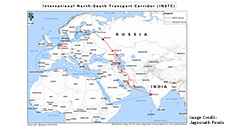EU-Japan-Taiwan Cooperation: Building a Blue Supply Chain

Niklas Swanström and Lwanga Egbewatt Arrey
The COVID-19 pandemic, the escalating trade war between the United States and China, and Russia’s invasion of Ukraine have exposed vulnerabilities and weaknesses in the global China-centric economic supply chain as democratic states have experienced significant economic pressures stemming from these external geopolitical occurrences. In this context, democratic states are increasingly falling victim to Chinese economic coercion and trade weaponization as the geopolitical stakes increase. This issue brief discusses the need to reduce dependence on the China-centric global supply chain and explores avenues and challenges that key democratic stakeholders like the EU, Japan, and Taiwan must acknowledge and consider to build a blue supply chain as an alternative to the authoritarian-centered red supply chain.
Related Publications
-
EU-Thailand FTA Negotiations: IUU Fishing and Human Rights Remain Obstacles
Thailand’s fishing industry, which at its height saw as many as 200,000 migrant workers from neighboring Laos, Myanmar, and Cambodia caught in a brutal system of abuse, withered global criticism […]
-
India-Middle East-Europe Economic Corridor: Will It Get Subsumed by Its Grand Vision?
The recently concluded Group of Twenty (G20) Summit in New Delhi under India’s presidency was, undoubtedly, a crowning moment for India. From providing the G20 with new relevance among the […]
-
ISDP Annual Report 2023
ISDP’s Annual Report for the year 2023. We look back on 2023, a year in which tensions and conflicts captured the strategic space in ISDP’s focus areas, making headlines around […]
-
Climate Security in the Indo-Pacific: Priorities and Challenges
The climate vulnerabilities of the Indo-Pacific region have grown immensely with grave implications for regional, national, human, and ecological security. Climate action has been prioritized by most countries, including by […]
-
Revitalizing INSTC: Analyzing Geopolitical Realignments and the China Factor
In recent years, the rise of Asia as the geoeconomic and geostrategic fulcrum has not only realigned global geopolitics but also reasserted the need for regional connectivity. For example, the […]




